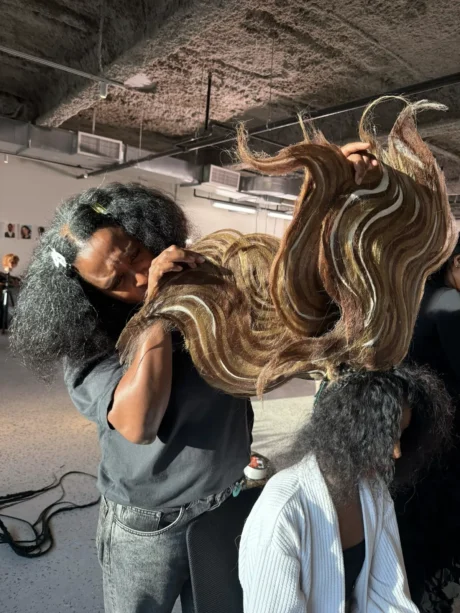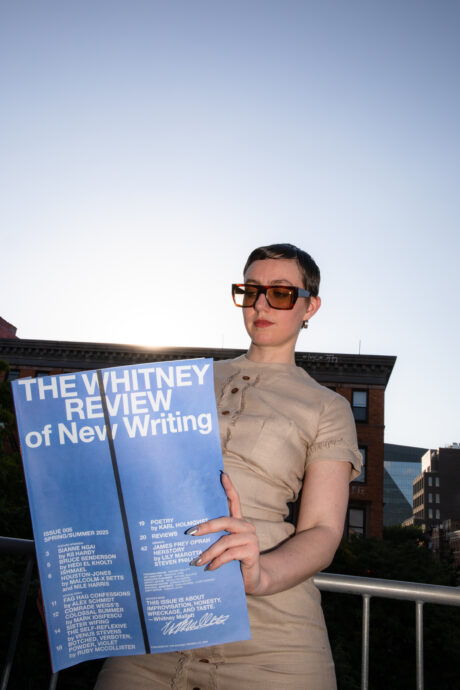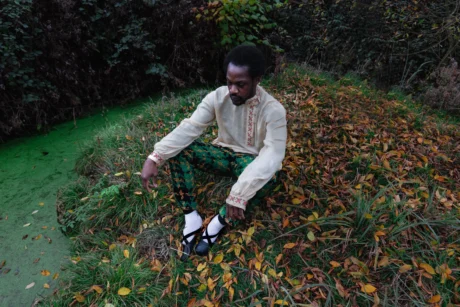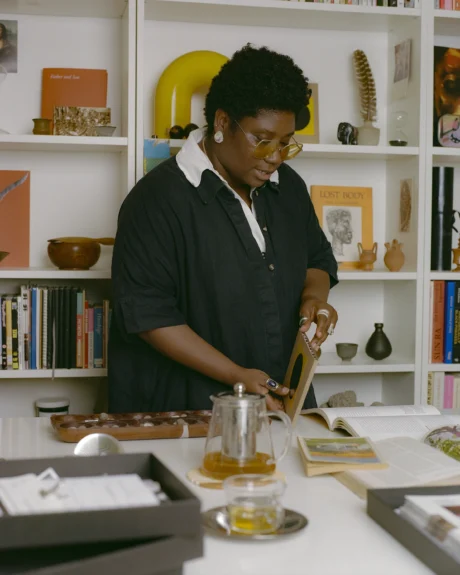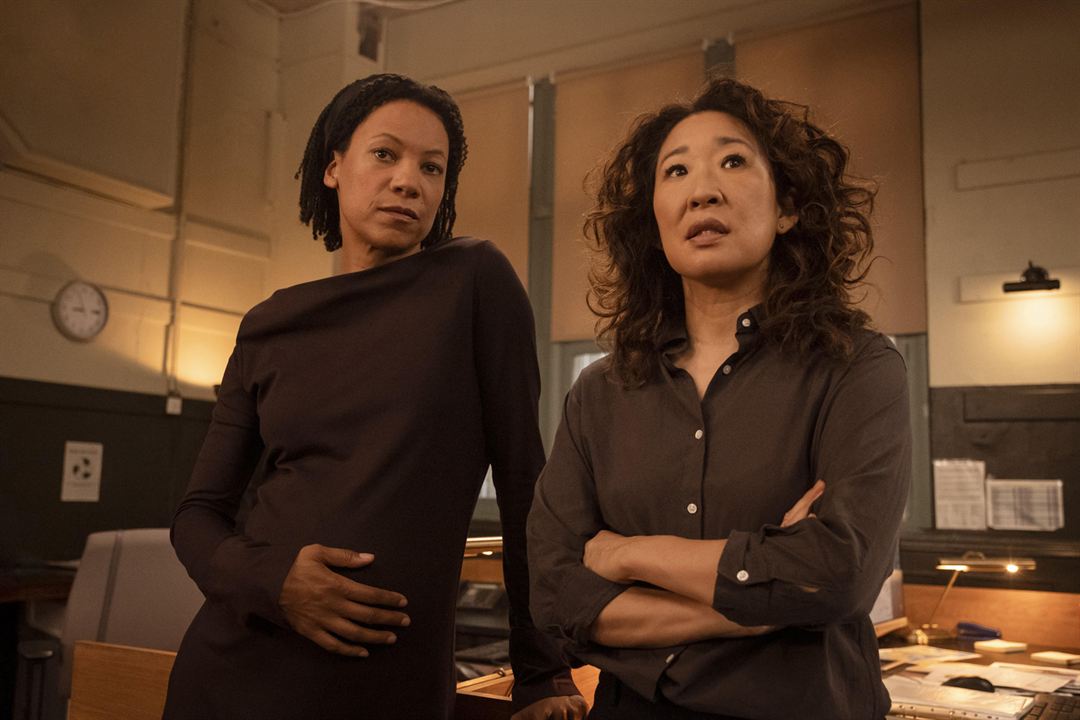
As I was bingeing Killing Eve the other week, it occurred to me that something far stranger than Jodie Comer cutting off willies had happened. Emerald Fennell (who took over from creator Phoebe Waller-Bridge to write Season Two) had stealthily introduced Jess, a highly experienced MI6 agent in Eve’s operation (played by Nina Sosanya). Jess is many things—smart, sardonic, impeccably-dressed. She is also pregnant.
It’s not earth-shattering that she’s pregnant. But what’s incredible is there’s no mention of Jess’s pregnancy whatsoever until episode four—when she travels to Amsterdam to investigate another gristly murder Villanelle has committed in Amsterdam. The pregnancy is almost suggested as a reason Jess shouldn’t go—until Eve checks herself, and they all shrug it off. It’s clever, full-frontal feminism. Jess, in that moment, arguably becomes the most transgressive character in Season Two.
“It’s only marginally better than shoving a pillow up your t-shirt”
Back out in the (sur)real world, it seems most of the maternity lines of major brands in Britain have been using regular models with fake bumps strapped on—generally made out of foam or padding in case you were wondering—instead of actual pregnant women. It’s only marginally better than shoving a pillow up your t-shirt, a simulation that totally ignores the very real physical changes a woman’s body goes through when there’s a baby growing inside her. In Killing Eve, actress Nina Sosanya is also not pregnant, but in the context of a fictional television series, that seems more acceptable: especially as we learn true facts about pregnancy thanks to Jess (such as the fact a growing foetus takes calcium from its mother’s teeth, the reason pregnant women are entitled to a full year of free NHS dental care).
This conversation started very recently: Love Island (whatever that is) fans spotted one former contestant Arabella Chi modelling maternity clothes for Asos. She was not pregnant. It sparked a whole campaign for honest maternity advertising, #PushItOut, lead by model and mother Louise Boyce, who joined forces with Joeli Brearley. They called out brands—Asos and Boohoo among them—who were guilty of presenting images of unrealistic bumps. Where are the cankles, the puffy cheeks and lips, the stretched buttocks and swollen thighs? There has been an outcry in the media from women who know that this is not what pregnancy looks like.
Spuriously, brands suggested they didn’t want to use pregnant models over concerns for their well-being. “It’s not a disease,” as one model, Sylvia Flote, accurately put it in an interview with the BBC.
In my mind, prosthetic bumps aren’t only about continuing to convey unrealistic standards for women—even when their body is going through a complete Kafka-level metamorphosis. It’s also—as the response from brands disingenuously implies—about the way we treat pregnant bodies in society. Brands are trying to sell pregnant woman clothes for their fluctuating shapes, but they’re denying us the right to see and celebrate those miraculous transformations. Many women say they feel they’re most beautiful when pregnant. Pregnant women have been muses to artists for centuries. In contemporary culture, we seem to have gone backwards.
“Pregnant women can drive cars, do the shopping, even, as I remember my midwife telling me, go horse-riding”
For many of us, life begins in hospital. Pregnancy is medicalized, referred to as a “condition” and treated with trepidation. Some care and respect of the pregnant body is of course appreciated and, clearly, as Baby on Board badges prove, it’s needed. But pregnancy doesn’t stop you from doing things—just like being the “weaker” sex generally doesn’t. Pregnant women can drive cars, do the shopping, even, as I remember my midwife telling me, go horse-riding (I am not advising anything here). Women have run marathons while pregnant. Olympians have competed while pregnant. Serena Williams won the 2017 Australian Open while pregnant.
This doesn’t mean you shouldn’t offer a pregnant lady your seat—but there’s a whole lot of ignorance about what pregnancy actually does to your body, and hiding the truth from consumers is not going to be an effective strategy for changing that. If in doubt, let the pregnant woman herself lead the way.
Boyce and Brearley’s campaigning has worked, to an extent—Asos will now put a disclaimer on their faked pregnancy pictures. “Great,” said one friend when I shared the news, “now they just need to add the disclaimer that says their ‘pregnancy shapewear’ is completely fucking unnecessary, and we’ll be cooking with gas!”
